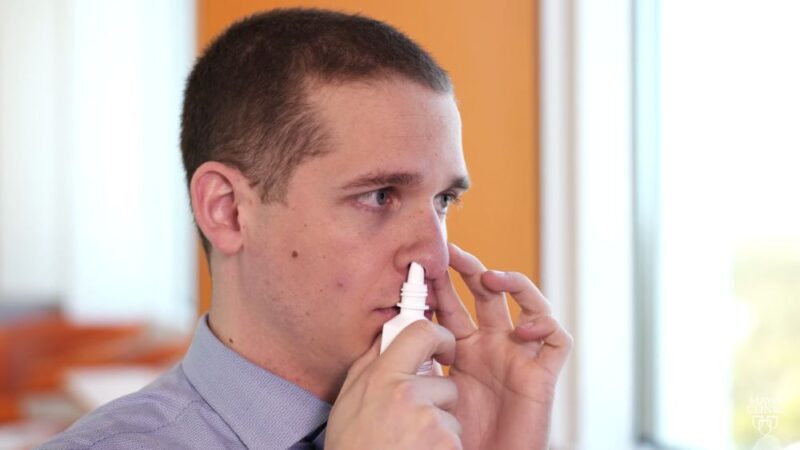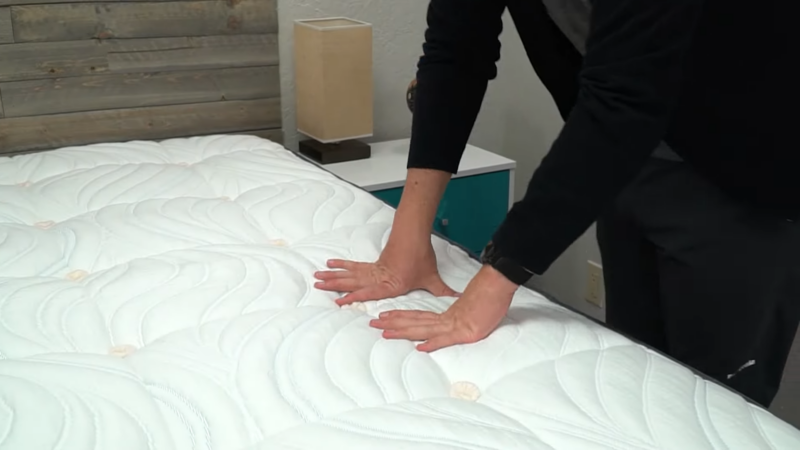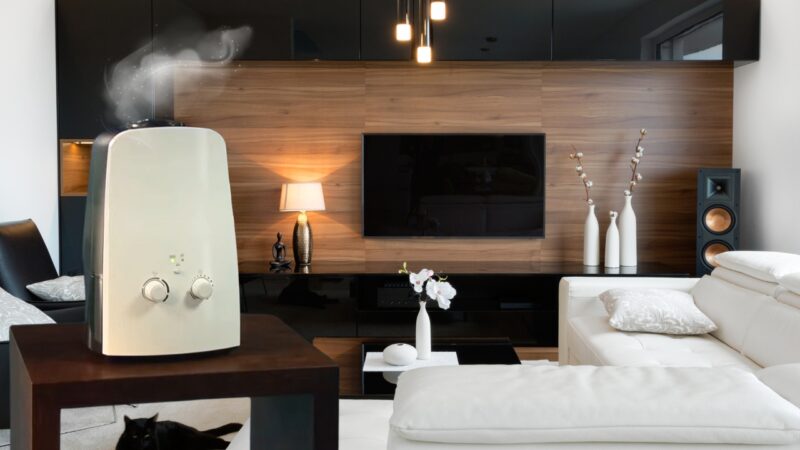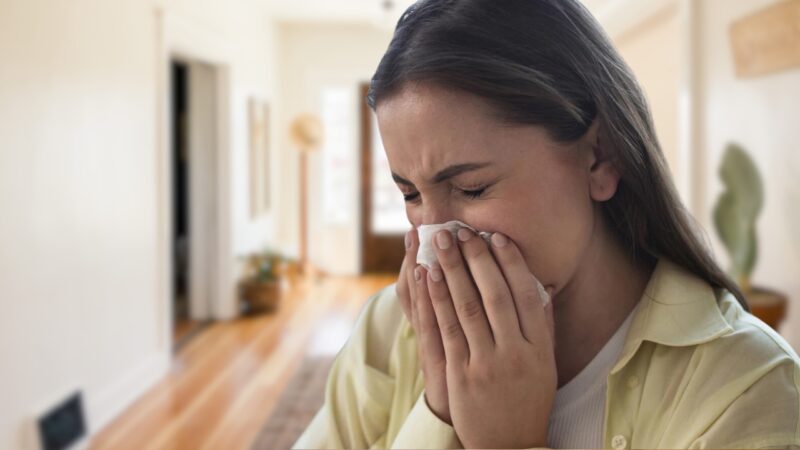Dust allergies are a common problem that affects millions of people worldwide. While there are numerous over-the-counter and prescription medications available, many individuals are turning to natural remedies.
We will provide more details about the world of natural cures for dust allergies, offering valuable insights and easy-to-understand information.
Understand the Symptoms
Before you start looking for medications or natural solutions, it is important to learn more about the conditions you are facing. If you are not sure whether it is the dust allergy or some other problem, the best option is to visit your doctor.
On the other hand, if you are aware of your allergies, and you were already experiencing the same issues, you can explore some reliable products that can help. The most common symptoms are sneezing, congestion, itchy eyes, and coughing.
Natural Remedies
1. Improve Indoor Air Quality

Maintaining clean indoor air is essential for managing dust allergies. Here are some effective steps to achieve this:
2. Use HEPA Filters
These filters are designed to trap tiny particles, including dust mites and pollen. Install HEPA filters in your HVAC system and use a vacuum cleaner equipped with one. This can significantly reduce the number of allergens circulating in your home.
3. Regular Cleaning
Dust is the primary culprit behind dust allergies. Make a habit of dusting surfaces, vacuuming carpets, and washing bedding frequently. Use hot water when washing bedding to kill dust mites effectively. Additionally, don’t forget to clean or replace your HVAC filters as recommended by the manufacturer.
4. Reduce Clutter

Clutter not only collects dust but also makes cleaning more challenging. Declutter your living spaces to create an environment that’s easier to clean and keep dust-free.
Natural Allergy-Reducing Foods
Certain foods can help alleviate allergy symptoms by reducing inflammation and boosting your immune system:
1. Quercetin-Rich Foods
Quercetin is a natural antioxidant found in foods like apples, onions, and berries. It has anti-inflammatory properties and can help reduce histamine release, which is responsible for allergy symptoms.
2. Omega-3 Fatty Acids
Foods rich in omega-3 fatty acids, such as salmon, flaxseeds, and walnuts, have anti-inflammatory properties that may reduce allergy-related inflammation. Consider incorporating these foods into your diet regularly.
3. Honey
Some people believe that consuming local honey can help desensitize your immune system to local pollen, potentially reducing allergy symptoms. While scientific evidence is limited, enjoying a spoonful of local honey can be a delicious way to explore this remedy.
Nasal Irrigation and Saline Sprays

Nasal irrigation, often using a neti pot or saline nasal spray, can be an effective way to clear allergens from your nasal passages. Here’s how it works:
1. Neti Pot
A neti pot is a small container used to flush out your nasal passages with a saline solution. It’s essential to use sterile water and follow proper instructions to avoid complications. Nasal irrigation can help remove allergens and mucus, providing relief from congestion and sneezing.
2. Saline Nasal Sprays
Over-the-counter saline nasal sprays are a convenient alternative to neti pots. These sprays moisturize your nasal passages and flush out irritants. They are safe for regular use and can provide relief from dust allergy symptoms.
Herbal Remedies
Several herbs have shown promise in reducing allergy symptoms:
1. Butterbur
Butterbur extract is derived from the butterbur plant and is known for its ability to relieve allergy symptoms. It may work by reducing the production of histamines, which trigger allergy symptoms.
However, it’s essential to choose a product that’s free of pyrrolizidine alkaloids, which can be toxic to the liver.
2. Stinging Nettle
Stinging nettle is another herbal remedy that may help alleviate allergy symptoms. It contains compounds that act as natural antihistamines, reducing the release of histamines in the body. You can consume stinging nettle as a tea or in supplement form.
Essential Oils

Essential oils are natural extracts from plants that can provide relief from allergy symptoms when used correctly. Some options include:
1. Peppermint Oil
Peppermint oil contains menthol, which can help alleviate congestion and improve airflow when inhaled or diluted and applied topically. You can inhale the steam from a bowl of hot water with a few drops of peppermint oil to ease nasal congestion.
2. Lavender Oil
Lavender oil’s soothing properties can help with sleep and relaxation, which is especially beneficial when allergies disrupt your rest. Diffusing lavender oil in your bedroom can create a calming environment conducive to a good night’s sleep.
Lifestyle Changes
Aside from natural remedies, making specific lifestyle changes can significantly reduce your exposure to dust allergens.
Bedding and Mattress Covers

Invest in hypoallergenic mattress and pillow covers to create a barrier between you and dust mites. These covers are designed to block allergens from infiltrating your bedding and mattress.
Wash your bedding frequently in hot water to kill any dust mites that may have already found their way in.
Allergen-Proof Solutions
Take steps to minimize dust mites and allergens in your home.
1. Wash Stuffed Animals
If you have children with dust allergies, wash their stuffed animals regularly to remove dust mites. Use hot water and a high-temperature dryer cycle to ensure thorough cleaning.
2. Choose Hard Flooring
If possible, opt for hard flooring like hardwood, laminate, or tile instead of carpets, which can trap allergens. If you have carpets, vacuum them frequently with a HEPA-filtered vacuum cleaner.
3. Pet Management
If you have pets, bathe and groom them regularly to reduce allergens in their fur. Keep them out of bedrooms to create an allergen-free sanctuary where you can get a good night’s sleep.
Manage Humidity

Maintain indoor humidity levels between 30% and 50%. Dust mites thrive in high humidity, so using a dehumidifier can help prevent their proliferation. On the other hand, an environment that is too dry can also worsen allergy symptoms, so finding the right balance is crucial.
Allergen-Aware Cleaning
When cleaning your home, take precautions to minimize allergen exposure.
1. Wear a Mask
Dusting and vacuuming can stir up allergens, so wear a mask to prevent inhaling them.
2. Use a HEPA Vacuum
A vacuum cleaner equipped with a HEPA filter can effectively trap dust mites and allergens, preventing them from becoming airborne.
3. Damp Dusting
Instead of dry dusting, use a damp cloth to wipe surfaces. This helps capture dust rather than spreading it around.
Consult with an Expert
If your dust allergies are severe or persistent, consider consulting an allergist. They can perform allergy testing to identify specific triggers and recommend personalized treatment options, including immunotherapy.
Immunotherapy involves gradually exposing your body to allergens to build tolerance and reduce allergic reactions over time.
FAQs
What is immunotherapy, and how does it work for dust allergies?
Immunotherapy is a treatment option recommended by allergists for severe or persistent dust allergies. It involves gradually exposing your body to allergens to build tolerance and reduce allergic reactions over time. Allergy testing helps identify specific triggers for personalized treatment.
How can I reduce dust mites in my home besides using hypoallergenic covers?
To minimize dust mites, you can wash stuffed animals regularly, choose hard flooring over carpets, bathe and groom pets, and maintain indoor humidity levels between 30% and 50%. These measures can help create an allergen-free environment.
Are there any precautions to take when using essential oils for allergies?
When using essential oils for allergy relief, it’s important to dilute them properly and follow safe usage guidelines. Inhaling or applying diluted essential oils like peppermint and lavender can help alleviate allergy symptoms.
Summary
Dust allergies can be a persistent and bothersome issue for many people, but there are effective natural remedies and lifestyle changes that can provide relief.
Also, be sure to always check with your doctor before you start using any product or medicine.

